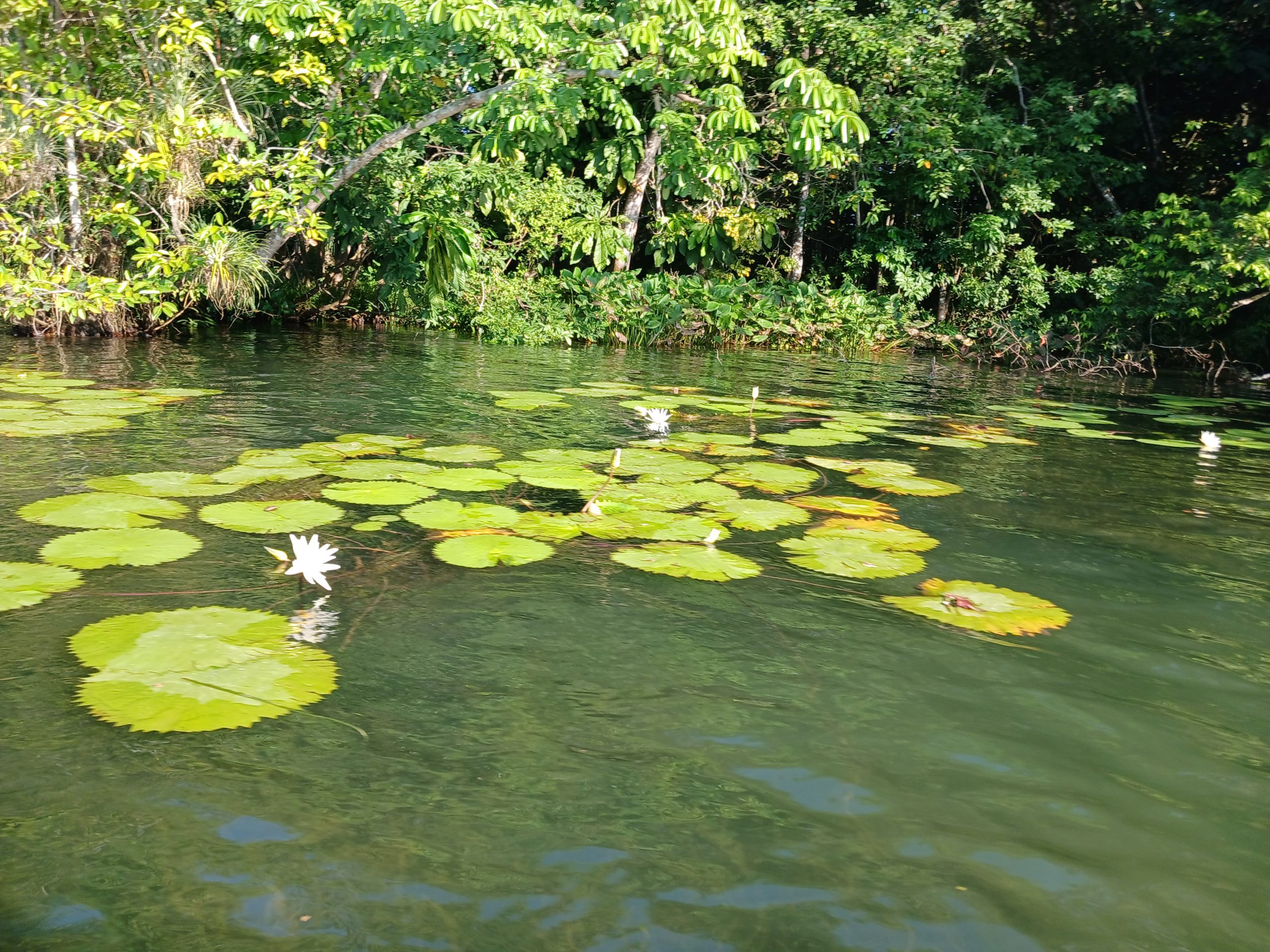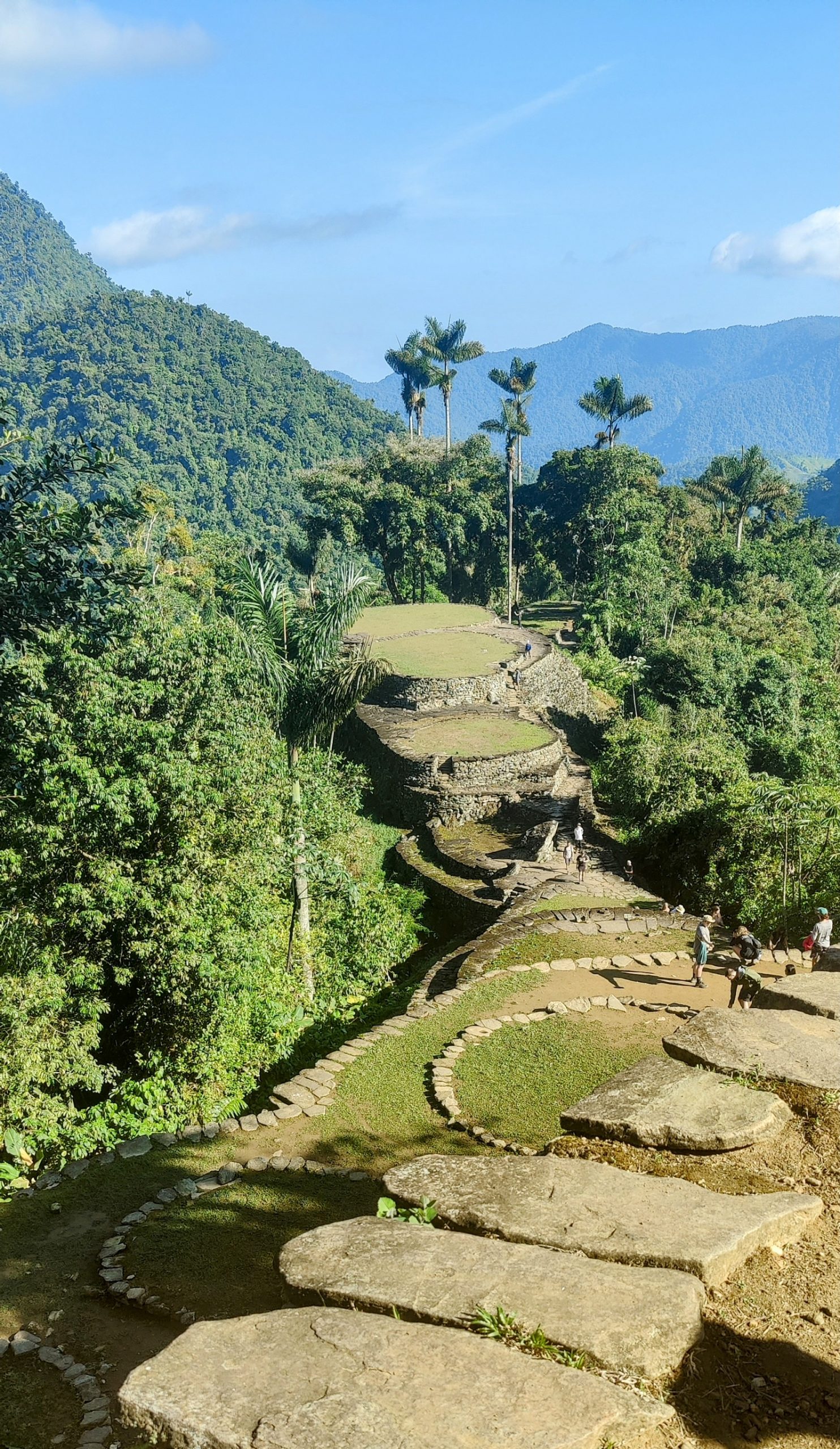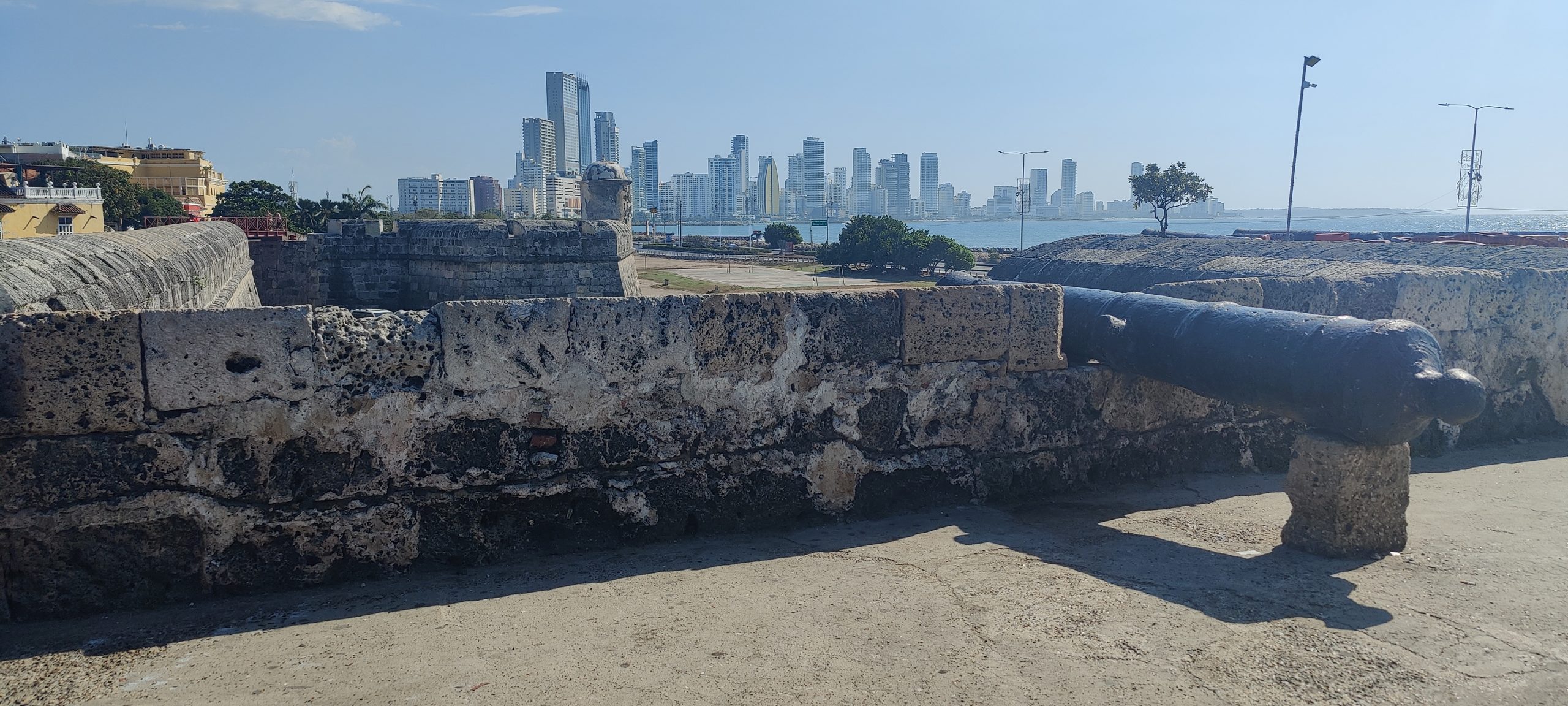Thank you Guatemala
We say thank you for now to beautiful Guatemala, which has offered different experiences for us. Salt water under the keel had been replaced by fresh water and high humidity in the lush jungle of the Rio Dulce, which forms the transportation route for those living along the river. I especially take with me the unpretentious atmosphere of the city, the cozy restaurants, the lush and beautiful landscapes, and the many flocks of silver egrets and frigatebirds that soared above us on the dinghy ride into town.
The Weather
During our stay in Rio, the weather changed from very wet with rain every day, to very hot with temperatures up to 38 degrees, which felt like 52 due to high humidity.
The high humidity also meant that we got mold on all our things, both inside and outside. We cleaned with vinegar periodically, but it was hard to get rid of it. Inside, we were able to dehumidify to a certain extent with our portable aircon, which is only just strong enough to cool the saloon down. Outside, we got mold and algae on everything from the bimini cover to the ropes.
The last 2 weeks there was so much rain that streets in the city were flooded and the marina had to turn off all electricity on the docks due to the high water level.
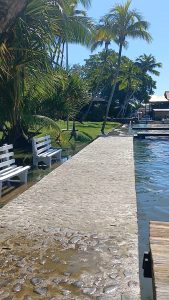
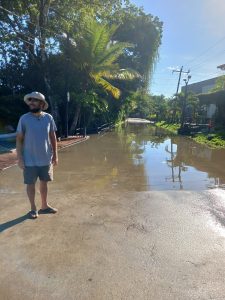
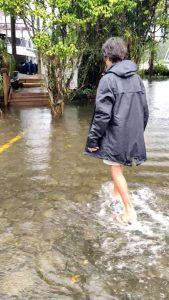
We did a single trip into Guatemala City and Antigua, which was really picturesque with an almost European atmosphere with cobbled stone streets with vegan cafes; and a hike up Acatenango, which will be an unforgettable trip for us.
Sailing community and the everyday life
Rio Dulce has a large sailing community with social events. Here we became part of a slightly different sailing culture than we have seen in Europe and the Eastern Caribbean. Mainly Americans and Canadians have boats in Rio Dulce. Typically a retired couple who sail around the US and the Caribbean. There were also a few Europeans who styaed there for hurricane season, like us. For example, a French boat where you could come and get a haircut on the boat at anchor. Fortunately, the weather was calm when I had my hair cut.
Most food in Guatemala was super cheap, except for imported items like cheese. You could eat out for 4 people with food and drinks for DKK 300. A world of a difference from the eastern Caribbean, where a red bell pepper cost DKK 56!
The locals in Guatemala are incredibly nice and friendly. It was clear to us that they struggle with poverty and a great degree of inequality. But we didn’t feel the same pressure from them as we experienced in the Eastern Caribbean Islands.
After the presidential election in August, there was some unrest with roadblocks. We were also a bit nervous when we saw empty shelves in the supermarket and no petrol/diesel at the gas station. However, it resolved itself within a few weeks, and we were able to provision in the slightly flooded streets before our departure.
The indispensible section on repairs
Martin got through quite a few things on his very long todo list for things that need to be fixed on the boat, and since we were there for the whole hurricane season anyway, we got both the upholstery in the saloon done and the sanding/varnishing of most of the wood. Labor in Guatemala is really cheap. On the other hand, it is difficult to obtain boat equipment and spare parts. For example, it took 2 months to get gaskets delivered to our leaky hatches, which have otherwise been discontinued, but whose gaskets are still being sold. When we finally got them delivered after weeks of hassles about customs etc., they turned out not to fit anyway because the manufacturer had stopped making gaskets for our type of hatches and had now just sold some cheap gaskets as if they were the right kind.
Rio, our little boat kitten
In particular, our time in Guatemala was marked by having Rio, our little cat, who we adopted at just 6 weeks old. We all grew fond of him. But after some research, we found out that it would be very cumbersome to travel around with a cat, especially when we come to Australia and New Zealand. The pet passports we knew from Europe are not valid elsewhere, and we had the choice between taking Rio with us and spending several days on bureaucracy in each new country we visited, and finding a new home for Rio.
Fortunately, our craftsman became very fond of Rio, as it had a habit of following his work and watching what he was doing. He was more than happy to adopt it, and we were also happy to pass Rio on to someone who had already grown fond of it.
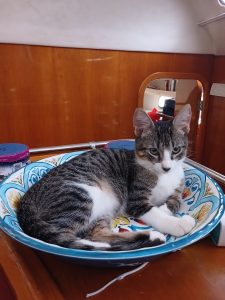
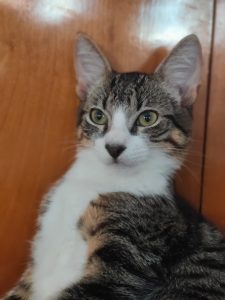
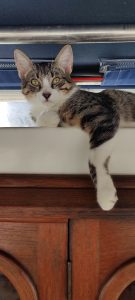
Last minute issues
As usual, we had some technical challenges on departure, like our gas stove that broke, all the oil leaking from the port engine and sail instruments that all went on strike, probably due to moisture damage or one of all the lightning strikes that have been in Rio Dulce.
The stove was really an “old” problem. We ran out of gas in Florida half a year ago. Since then we have not been able to fill our gas bottles because we have a Spanish top on the bottle. In Guatemala we had the top of one of the bottles changed and filled with gas. This also meant that the regulator had to be changed. Martin got hold of a regulator from a local shop and had it fitted. When we turned on the gas, we could hear a leak. We had a mechanic come and look at it. He started testing, got a fire started, and discovered a little too late that there was a leak and that the burner could not be switched of. Martin was in the middle of it. We closed the gas supply from the bottle in the cockpit, but not before an explosion hit Martin and the mechanic, who were both startled and lost all hair on their legs.
The stove was discarded and we were in urgent need of a stove. Finding a new boat stove in Guatemala was not possible and we did not have time to get one shipped from Florida. Martin tried hard to find a used stove, but none of the ones he found actually worked. So for now we have to resort to our small induction hob with 2 burners, which requires so much energy that we have to run a generator when we cook.
It reminds me of Gioele, whom we met in Mexico. He had gotten used to living spartanly because things on his boat broke and he just learned to live without them. Maybe he was just a little further along in the process compared to us.
Despite the challenges, we managed to leave for Utila in Honduras with a buddy boat, an American couple from Colorado. It’s great to be on the move again.
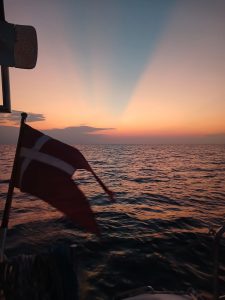
Lastly a video of one of many creeks in the beautiful river.
